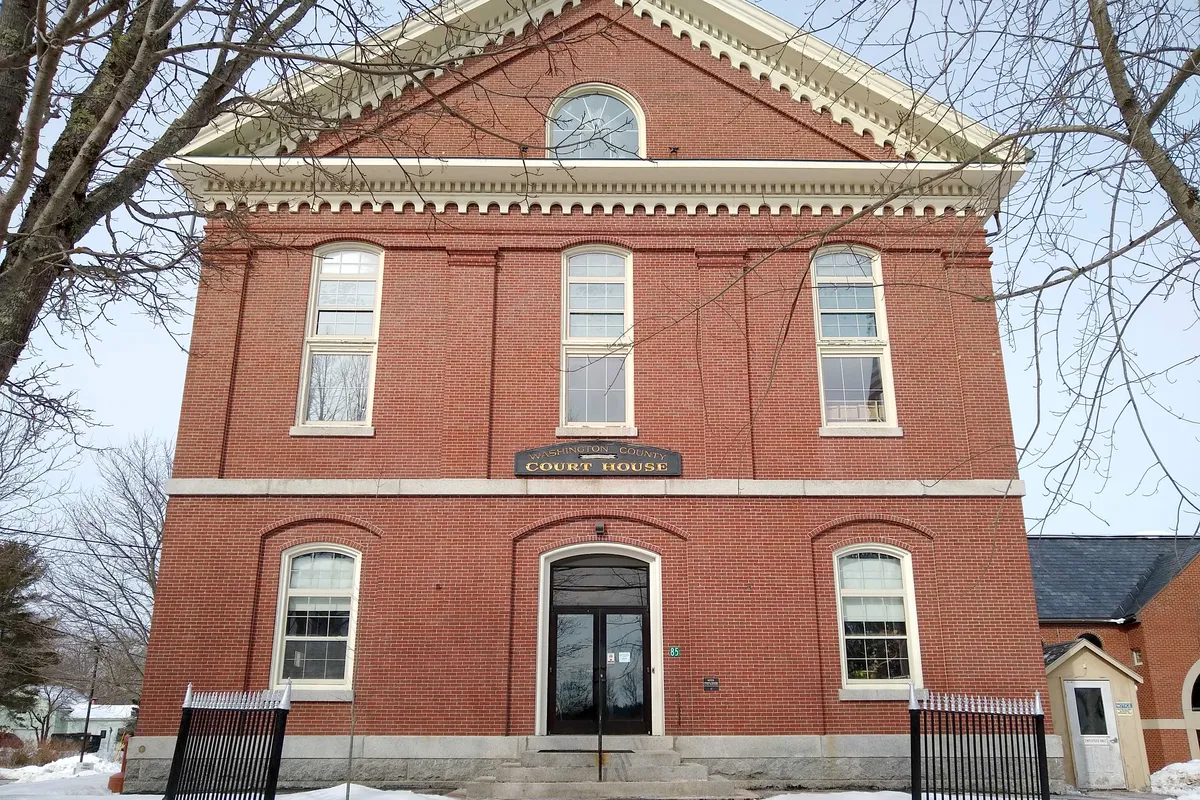
The former Washington County treasurer moved $400,000 of taxpayer money in a way that violated state law and helped to mask a budget crisis falling hard on Down East Maine.
Jill Holmes, the longtime treasurer who resigned earlier this month, approved transfers on two separate days in February from a fund that goes toward services in the Unorganized Territory, the state’s designation for places without municipal governments, to the county’s regular budget, county officials said this week.
The money was replaced by county commissioners in August, but state law requires the county to keep that money separate from its own funds. While there is no indication that taxpayer money was misused, the transfers helped obscure years of cash flow problems that have prompted a political firestorm.
“I believe it was an error,” Washington County Manager Renee Gray said of the February moves. “We fixed it as soon as we figured it out.”
Washington County commissioners are now mulling a 40% budget hike as well as asking voters to approve an $11 million bond issue to help the county refinance debts and keep services going. It is the result of a long period of budget mismanagement in which estimated surpluses were carried forward from year to year without anyone verifying the money was actually there.
Much of the trouble was discovered in 2024, but separate errors continued to pile up in the 2025 budget, adding another $700,000 to the deficit. The presence of money from the American Rescue Plan Act of 2021 as well as the other transfers hid the depth of the cash shortage until this summer, when the money ran out and forced the county to take on additional debt.
Gray and Commissioner David Burns both said the error was discovered recently by the county’s auditor, who is primarily working on the county’s 2022 books but has been looking ahead at more recent transactions as well. Holmes did not respond to a request for comment this week.
“It was inappropriate to make that particular transfer,” Burns said.
Roughly half of Washington County’s land area lies in the Unorganized Territory, which is jointly managed by counties and the state. The state’s manager for the area, Heron Weston, said he was only informed of the transfers shortly before commissioners replaced the money in the summer. He said the UT budget was now in “fine financial health.”
In that way, Holmes’ maneuvering had “zero impact.” Money in the account was plentiful partly because some money had been set aside for a bridge construction project. Funds had to be maintained so the Territory could match funds from Maine’s Department of Transportation.
But the transfers are part of why Washington County’s budget crisis is poised to stretch deep into the fall and possibly beyond. If the voters do not authorize the $11 million bond, county services including the sheriff’s office could grind to a halt. Passage of the county’s bailout plan would also force difficult budget conversations in every city and town.
At a packed budget hearing on Thursday, former Commissioner Chris Gardner, who was serving when errors were first discovered in 2024, made a plea to fellow residents to blame him and not the current crop of officials for the problems. His mea culpa cooled the temperature of the meeting. But outside the court room hosting the meeting, he told a different story.
In a conversation with Eastport City Manager and newly-elected Budget Advisory Committee Chair Brian Schuth that was held in view of a reporter, he expressed worry about the legal implications of Holmes “taking money” from UT funds to cover shortfalls. Later, Gardner said he did not have direct knowledge of Holmes’ alleged actions.
Schuth, now tasked with helping set a budget despite widespread confusion over the state of Washington County’s books and uncertainty about voters’ willingness to pass a bond issue, said the transfers will not change his overall mission.
“That doesn’t influence the underlying question we [the budget advisory committee] are supposed to answer, which is: Are the level of services provided by the county appropriate, and are they being provided?” he said.
Daniel O’Connor is a Report for America corps member who covers rural government as part of the partnership between the Bangor Daily News and The Maine Monitor, with additional support from BDN and Monitor readers.



